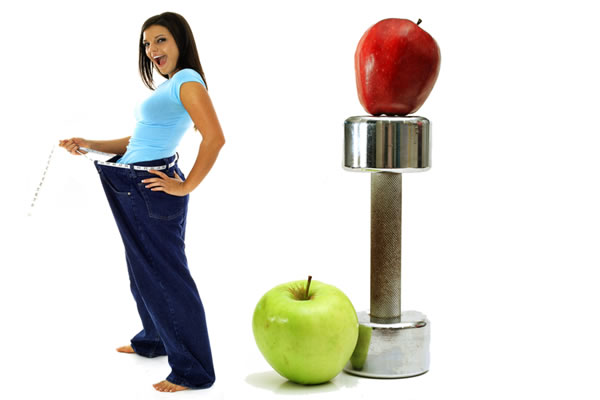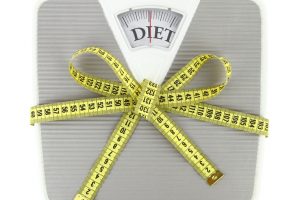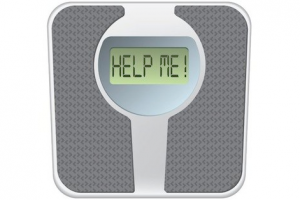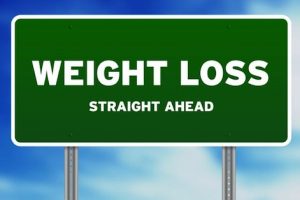You have spent considerable amount of time trying really hard to lose those extra pounds. You climb on the scales and the moment of truth has come; to your relief and joy you did it. You reached your weight loss goal. What a great moment. But how long does it last?
Often the weight lost doesn’t stay away for too long and it slowly creeps back. Another diet cycle follows, or you convince yourself that the only way is to be on a diet for eternity, or just give up.
If only you knew that maintaining weight loss is not that hard after all. Well for most of the cases. Read on to find out how and why.
Which diet?
Weight maintenance will depend on which diet did you follow to begin with and how much weight did you lose? To put it blandly if you did a 7 day radical – starvation regime and you lost a couple of pounds it is likely that you will put the weight back on. How to maintain the weight? Choose a better diet next time.
Any weight loss resulting from fast (a few days – 1 week), radical, very low calorie diets is mainly water, glycogen and some not significantly measurable fat. The minute you go back to your usual dietary patterns the weight will go back on as water, glycogen and some fat.
Think ahead
Plan for the after-the-weight-loss period before you even start a diet. For whatever reason you chose to lose weight and follow a weight loss diet, don’t just treat it as a blip moment in your life which now is over and thank god for that. Treat your weight loss as a time in which you will make lifestyle changes.
Is always best to choose a healthy balanced weight loss diet which will allow you to lose the weight you want and also teach you how to eat healthy and balanced post diet. These little habits which you will pick up on the way are the ones which will help you to keep the weight off.
A lot of the diet regimes these days do contain sections of how to go about it post-weight loss. Take the time to look into them. They may have valuable advice on what to do next.
Find your weight gain nightmares
Well what does make you put on weight? The simple answer for majority of people would be too many calories, the wrong foods and too little physical activity. Look into more specific reasons such as ‘which foods do you tend to eat more’? Is it too many takeaways, too much sugar, big portions and so on? For each person may be a different combination.
The principle however, is one. Whatever made you put on weight to start off is what will make you put on weight again if you don’t change it.
Keep a foods and drinks diary for a week
A foods and drinks diaryis usually the best way to find those little weight gain nightmares mentioned above. It will provide you with the information of what do you eat, when and how much and you may find patterns which you didn’t know were there.
It is also helpful to include your emotion as well. For example how were you feeling –sad, happy, stressed etc- and what did you eat. You don’t have to be an emotional eater but you may choose specific foods based on your emotions. For example, you have those biscuits in the office every time you are stressed or you have that extra cake every time you meet your friends and are having fun chats.
Don’t deprive yourself
Changes your dietary habits or your lifestyle doesn’t necessarily mean deprive yourself from specific foods forever. Do have a takeaway day, or a chocolate moment or a cocktails night. Well maybe not have a ‘day’ everyday. For example have a takeaway day once a week or once every 2 weeks or keep those threats for when you go out. Allow yourself a piece of chocolate or an ice cream, biscuit etc once every so often.
You can still enjoy the things you like, only in moderation.
Keep a plan
Following from above, set your own plan on when you will be having a takeaway for example. This will help you keep more control on the foods you eat. Be flexible about it, your plan doesn’t have to be setting stone. For example if Friday is a takeaway night doesn’t mean that you can’t have it on a Tuesday instead or that Friday you may choose to eat something else.
The point is more like saying Tuesday was a takeaway night and Friday I fancied a pizza and Saturday we visited some friends and they ordered some food…..Well you either end up losing count and control or when you do want a pizza to feel as if you depriving yourself when you have to say no.
Don’t make food special
Food is food and is a fundamental need for life and that all it is. Some foods can have harmful effects to health or affect your weight, some foods taste better (depending on peoples taste) some foods have health benefits and so on. However, don’t start putting food in terms of treats or special or any other category. Foods are not rewards, or treats. A takeaway or cake or whatever else you like is a food item which you enjoy and you occasionally include in your diet. Connecting food with emotions can create emotional cycles and can make food items more important than they are.
A lot of people may say I achieved something today or this week so I earn a takeaway or I will treat myself to a piece of chocolate. If you want to treat yourself choose something else you enjoy such a pampering session, or a dress or fishing trip if you are man or a ticket to a game. There are loads of different things you can do and you can find ideas which they will not necessarily break the bank.
Keep an eye on your portions
Apart from what kinds of foods we eat what is also important is how much we eat. Use a smaller plate and avoid layering the food. If you are still hungry is best to have a little bit more once you finished what you have in your plate. We often pile the food in our plates and eat more than we actually need or past the point of satiety. Also a half empty big plate can make us feel as if there is not enough food but a full smaller plate may not even if the two plates have the same amount of food.
Think of the speed of your hands
A friend recently said to me that how much we eat does not depend only on how fast our mouth processes it but also how fast our hand puts it in our mouth. This is actually a very valid point. It is easy to lose control on how much you have eaten when your fork goes with 100miles per hour and you pile the food into your mouth. Take your time and put your fork down every so often between takes. Give your brain a chance to realise how much food you eat.






